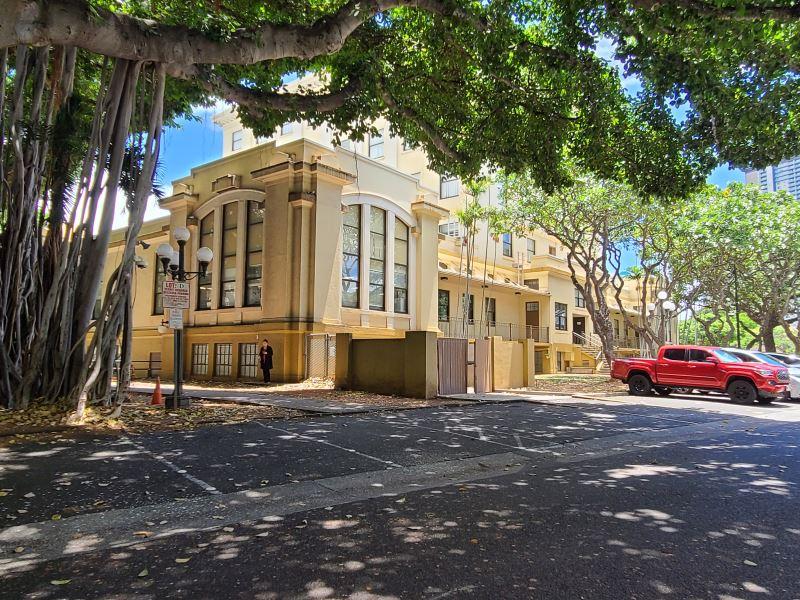The Hawaiian Electric Companies (HECO) filed an Integrated Grid Plan with the Public Utilities Commission. HECO followed up on this with an application seeking Commission approval to issue a Request for Proposals (RFPs) for Grid-Scale Resources, Non-Wires Alternatives, and Grid Services, docket no. 2024-0258.
Life of the Land filed a Motion to Intervene. This proceeding is of broad application. It relates to the State of Hawai‘i’s energy grid, inclusive of all islands in the State excluding Kauai. This docket is also a “parent” docket to numerous further proceedings before the Commission. This proceeding will have an impact on the individual Power Purchase Agreement (PPA) proceedings downstream of this docket. By intervening in this docket, Life of the Land can address issues that may arise in those individual proceedings.
The Public Utilities Commission opined, “the RFP process can be complex, lengthy, and challenging to follow, even for those who are familiar with it.”
The Commission denied Life of the Land`s Motion to Intervene. Attorney Diego A. Rivera filed a motion for reconsideration and a request for a Partial Stay of the Proceedings.
The filing is excerpted below.
From the start of this proceeding, the Public Utilities Commission has violated Life of the Land’s (LOL) constitutionally protected due process rights and right to a clean and healthful environment. [Article XI, Section 9 of the Hawai’i Constitution]
The Commission acknowledged these violations by converting this matter from a repository docket to a contested case hearing. Despite this conversion, the Commission continues to violate LOL’s due process rights by promulgating unlawful “Special Requirements” rules in violation of the Hawai‘i Administrative Procedures Act.
These unlawful “Special Requirements” rules constitute unlawful rulemaking, are arbitrary and capricious, and an abuse of discretion, and are unlawful procedure. The Commission promulgated these unlawful rules on the basis of “speed,” “quickness,” and “efficiency” at the cost of dispensing proper justice.
These “Special Requirements” have no authority in Hawai‘i case law, Hawai‘i Revised Statutes (HRS) or Hawai‘i Administrative Rules (HAR). A review of Commission Dockets confirms the absence of “Special Requirements” additional to the statutory requirements for intervention in a Commission docket.
The Commission explained that failure to respond to the Special Requirements ‘is grounds for denial of a motion to intervene or participate.”
The Commission, frustrated with LOL’s successful conversion of this proceeding to a contested case hearing through the assertion of its constitutional rights to due process and a clean and healthful environment, unilaterally imposed greater burdens than those prescribed by the Commission’s own rules to establish grounds to deny LOL’s intervention in this matter.
The application of these rules was also arbitrary and willful. The Commission explains that it denied LOL’s Motion to Intervene “as LOL failed to address the Special Requirements.” The Commission claims “LOL left the Commission to guess at whether LOL might want an evidentiary hearing, any witnesses it might call, and the subject of their testimony.”
At the same time, the Commission granted AES Clean Energy Development, LLC’s (AES) motion to intervene. Yet AES leaves “the Commission to guess” whether it may request an evidentiary hearing: “At this time, AES does not request an evidentiary hearing.”
Additionally, AES “leaves the Commission to guess” at the witnesses it may call: “we currently do not have a list of Hawaiian Electric witnesses AES would like to examine at this time, nor do we know the position of Hawaiian Electric’s witnesses at this time, including such witnesses’ responses to information requests.”
Additionally, the Commission states: “the term examining a witness encompasses both direct and cross-examination. Apparently, LOL considered only cross-examining another party’s witness, and not the possibility of calling and examining its own witness.”
It would behoove any party in a Commission proceeding where witnesses may be examined to consider what witnesses to call and what to ask them, well before discovery begins.
Despite AES “consider[ing] only cross-examining another party’s witness[es],” the Commission fails to issue a similar warning to AES and granted AES’s motion to intervene in the same order it denied LOL’s motion to intervene on the same grounds.
The Hawai‘i Rules of Civil Procedure provide that “the identification of witnesses” may be considered at pretrial conferences. These pretrial conferences occur after scheduling conferences, which are scheduled after a scheduling order is issued.
The expedited timeline within the “Special Requirements” rules is at odds with “rules or principals of law or practice” related to discovery, especially because the Commission required any interested party to determine whether an evidentiary hearing is necessary prior to conducting any discovery, such as information requests.
The Commission also provided each interested party only five (5) days to issue information requests, which were posed only to Hawaiian Electric, and could not exceed twenty (20) requests including subparts, highlighting the Commission’s obsession with speed over all else.
Because the Commission made its decision to deny LOL’s motion to intervene upon unlawful procedure, the Commission’s decision is unlawful and LOL’s motion to intervene should be granted.
From the start, the Commission has dispensed with the “high level of procedural fairness and protection” inherent to contested case hearings.
Thus, there is not an “appearance of justice” in this matter and “justice is not manifestly seen” as the Commission makes up rules as this matter proceeds.

